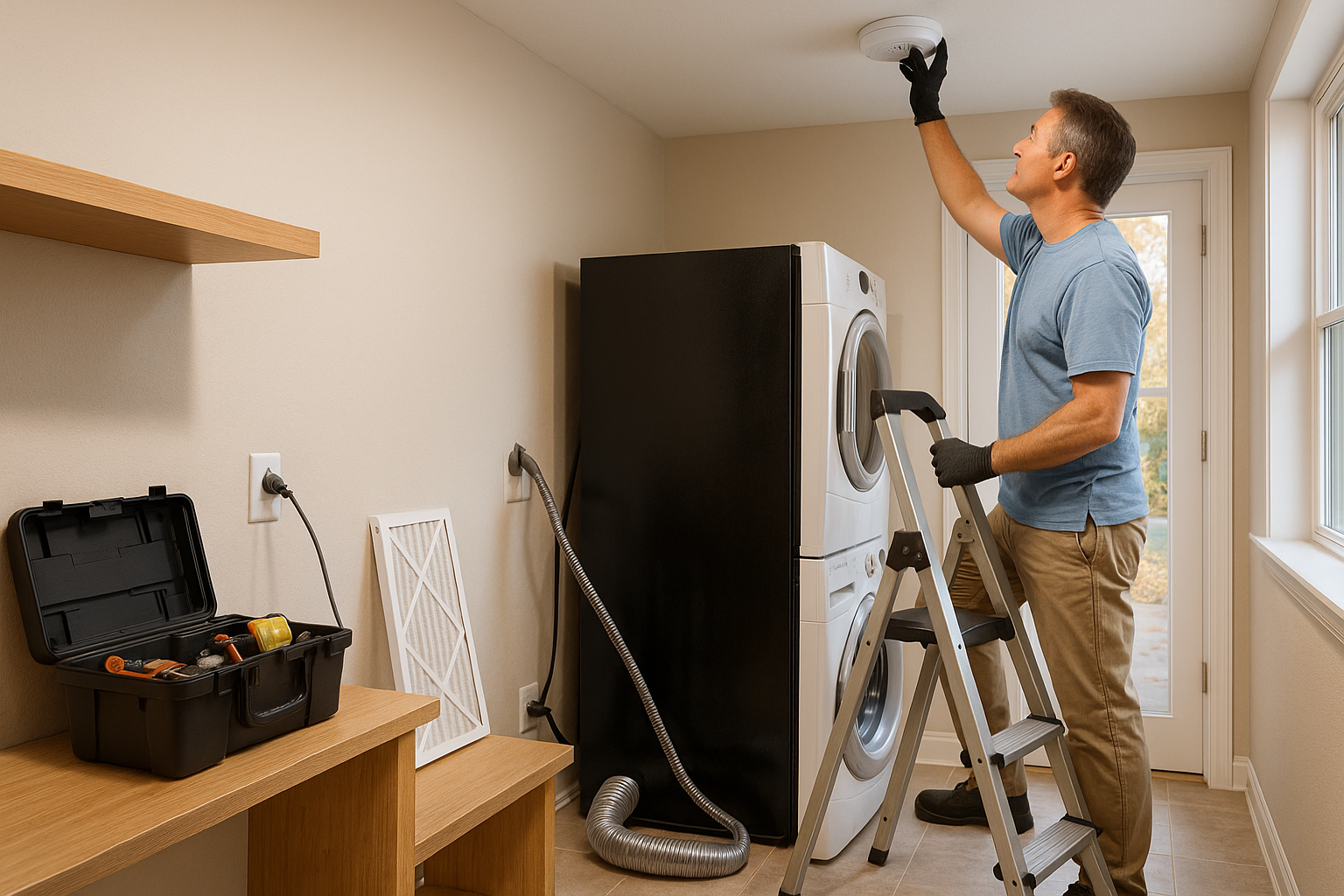Home maintenance is more than just keeping things looking nice—it’s about preventing costly repairs and ensuring your house remains safe, comfortable, and efficient. While major renovations grab attention, it’s often the smaller, routine tasks that make the biggest difference over time. Skipping these simple jobs can lead to bigger problems, higher expenses, and unnecessary stress. By incorporating them into your regular routine, you’ll keep your home in top shape and avoid unpleasant surprises.
Inspect and Clean Gutters
Clogged gutters can cause water to overflow and damage your home’s roof, siding, and foundation. Check your gutters at least twice a year, especially in spring and fall. Remove leaves, twigs, and debris, and ensure downspouts direct water away from the house. Installing gutter guards can reduce maintenance needs but won’t eliminate the task entirely.
Test Smoke and Carbon Monoxide Detectors
Your smoke and carbon monoxide detectors are your first line of defense in emergencies. Test them monthly to ensure they’re working properly, and replace batteries at least once a year. Many homeowners choose to replace batteries when clocks change for daylight saving time, making it an easy habit to remember.
Change HVAC Filters
A dirty HVAC filter forces your heating and cooling system to work harder, increasing energy costs and shortening its lifespan. Replace filters every one to three months, depending on usage and whether you have pets or allergies. This simple task improves indoor air quality and keeps your system running efficiently.
Check for Water Leaks
Even a small leak can lead to costly water damage and mold growth. Inspect under sinks, around toilets, and near appliances like dishwashers and washing machines for signs of leaks. Address any issues immediately, even if they seem minor, to prevent further damage.
Clean Refrigerator Coils
Dust and dirt on refrigerator coils can make the appliance less efficient, raising energy bills and shortening its life. Unplug the fridge, locate the coils (usually at the back or bottom), and clean them with a coil brush or vacuum at least twice a year.
Inspect Caulking and Grout
Over time, caulk and grout in kitchens and bathrooms can crack, allowing water to seep into walls and floors. Inspect these areas regularly and reapply caulk or grout as needed. This not only prevents water damage but also keeps the space looking fresh.
Test Garage Door Safety Features
If you have an automatic garage door, test its safety features monthly. Place an object in the door’s path to ensure it reverses when hitting something. Also, check the sensors by waving an object between them while the door is closing. These tests ensure the system will prevent accidents and injuries.
Drain the Water Heater
Sediment buildup in your water heater can reduce efficiency and shorten its lifespan. Drain a few gallons from the tank once or twice a year to remove sediment. Be sure to follow the manufacturer’s instructions or hire a professional if you’re unsure how to do it safely.
Lubricate Hinges and Moving Parts
Squeaky doors, sticking windows, and stiff locks can be easily fixed with lubrication. Apply a few drops of lubricant to hinges, locks, and sliding door tracks to keep them operating smoothly. This small task can extend the life of your hardware and prevent more serious issues later.
Trim Trees and Shrubs Away from the House
Overgrown branches can damage your roof, siding, and windows during storms. They can also provide a pathway for pests. Keep trees and shrubs trimmed at least a few feet away from your home’s exterior to reduce these risks.
Clean Dryer Vents
A clogged dryer vent is a fire hazard and can make your dryer less efficient. Clean the lint trap after every load and check the vent to the outside at least once a year. Removing lint buildup will improve safety and performance.
Check Exterior for Cracks and Damage
Walk around your home and inspect the siding, foundation, and roof for any cracks, missing shingles, or signs of wear. Catching issues early can prevent costly repairs and keep your home well-protected.
Flush Drains
Pouring hot water mixed with baking soda and vinegar down drains once a month can help prevent clogs. Avoid harsh chemical cleaners, which can damage pipes over time.
Inspect Attic and Basement
Check for signs of moisture, pests, or structural damage in your attic and basement. Early detection is key to preventing bigger issues, such as mold growth or wood rot.
Maintain Outdoor Areas
Regularly sweep walkways, clean decks and patios, and check outdoor lighting. Small upkeep tasks outdoors improve safety and curb appeal while preventing deterioration.
Final Thoughts on Home Maintenance
These small but important maintenance tasks may not seem urgent, but they play a huge role in keeping your home safe, efficient, and in good condition. By creating a checklist and scheduling them throughout the year, you can stay on top of upkeep without feeling overwhelmed. In the long run, a little regular attention will save you time, money, and headaches.

